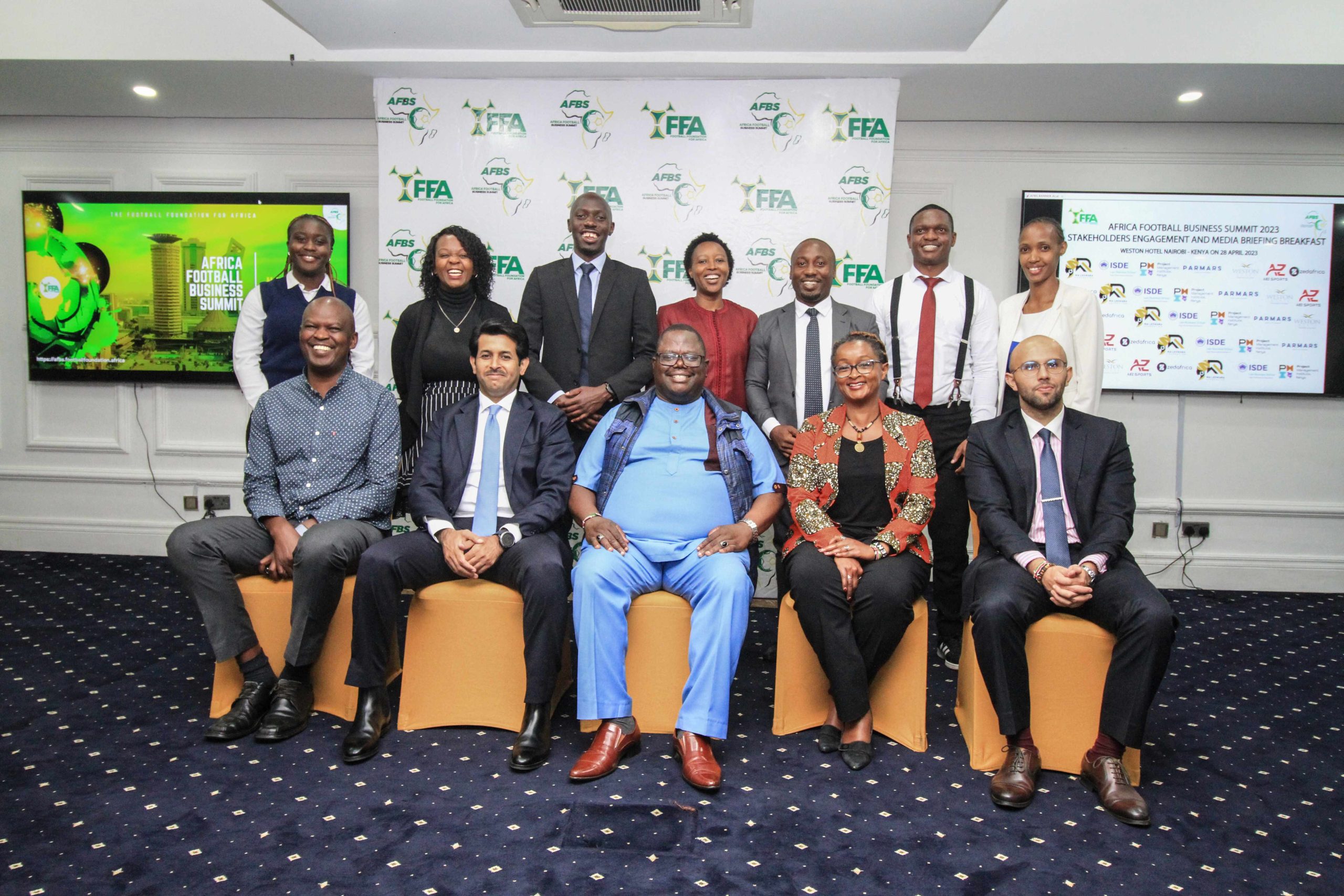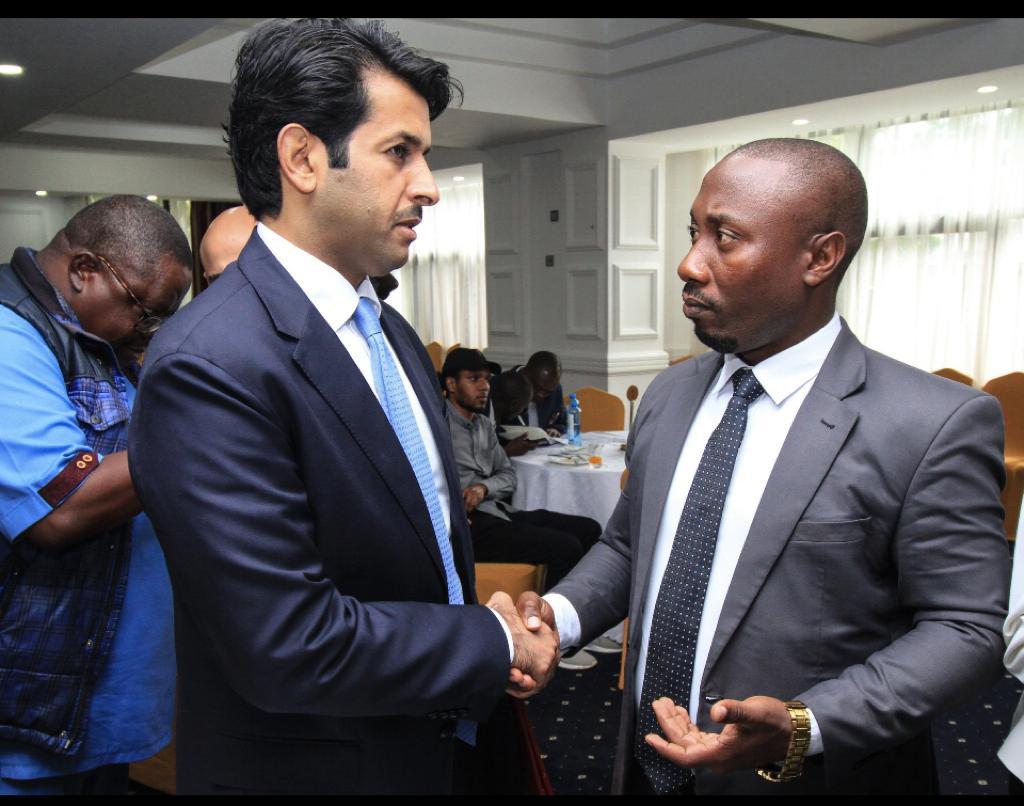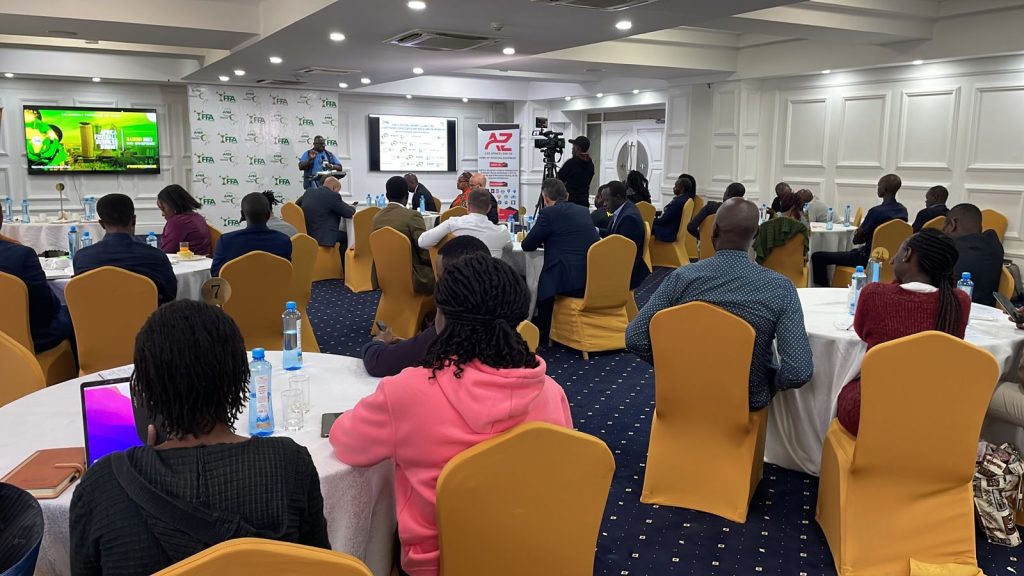
Guests were welcomed to the plenary by FFA Communications Lead Wambita Okanya. After that, the founder and CEO of The Football Foundation for Africa, Brian Wesaala, made his opening remarks. He called on stakeholders to work collaboratively, to learn from each other and on the need for Africa to invest in football enterprise with partners who paved the way. Mr Wesaala made special recognition to representatives from the 2022 FIFA World Cup hosts, Qatar, the first World Cup hosts in the Middle East. He also acknowledged the Embassy of the Kingdom of Morocco, who made it to the first semi-final – a first for an African nation.
Before the day’s speakers took to the stage, special messages were beamed into the Bogol Ballroom with The Football Foundation for Africa’s Chairman, Amb. Mohamed Shidiye, Kenya’s High Commissioner to Botswana and Special Representative to SADC, sent in his message from Gaborone. Other video messages from some of the speakers expected in Nairobi in September were played for the audience with Doctor Khumalo, Bafana Bafana’s 1996 AFCON winner expressing his excitement to be on the roll of speakers to address the African Football Business Summit later in the year. The governing body, FIFA, will also be represented in September. Its Senior Governance Manager, Ms Sarah Solemale, sent her message and expressed her expectations and willingness to share her expertise with the African football fraternity. Benin National Team Assistant Manager Tunde Adelakun also sent a video supporting the Summit.

The first speaker was Mwalimu Clifford Oluoch, a professional educator with over 30 years of nurturing and moulding minds in and out of the classroom. Mr Oluoch is the Principal at Regis School – Runda. The focus of his speech was Being Human. He gave the example of an exchange programme his school has established with institutions from neighbouring less privileged areas and the effect the exchange of ideas and competition has had on both his students at Regis School and the confidence he’s personally witnessed from their counterparts once the whistle to kick off a game is blown.
Mr Oluoch shared his experience through real-life scenarios he has experienced on the sidelines of sports events. He closed by reminding participants at the breakfast to “Keep it human!”
Ms Jean Mathenge, the President of the Project Management Institute of Kenya, stood to reinforce her commitment to working with The Football Foundation for Africa to grow the game’s business side. She further committed to assisting in training sports professionals through PMI – Kenya and invited Mr Wesaala to speak at the Project Management Institute – Africa Conference, which will precede the African Football Business Summit in September.
Mr Hamza El Guili, Counsellor at the Embassy of the Kingdom of Morocco, conveyed his Ambassador, H.E Abderrazzak Laassel message to the plenary. Mr El Guili spoke of Morocco’s efforts to forge partnerships on the African continent under the leadership of His Majesty Mohamed VI, the King of Morocco. So far, The Royal Moroccan Football Federation has fostered partnerships with 47 counterpart federations on the African continent. These all look to train African football professionals in an unprecedented drive in sports diplomacy.
On the heels of the first World Cup in the Middle East, The Football Foundation for Africa invited, from Qatar, Mr Nayef bin Majed Al Qahtani, the Charge d’ Affaires at the Qatari Embassy in Nairobi to speak on the legacy project that is the FIFA World Cup 2022 hosted in his country. Mr Al Qahtani first spoke of the preparation that went into the buildup. The work started immediately after Qatar won the bid in 2010.

Stadia and infrastructure were set up with a sustainable legacy being one of the most important themes the planners looked into. In Qatar, transportation was designed such that one could practically watch two matches in a single day, a factor which was not entirely feasible in previous World Cup Finals. Qatar also set up the first fully solar-powered stadium for the 2022 showpiece.
In terms of personnel, Mr Al Qahtani shared with those present that over 15,000 Kenyans were employed in the buildup to the World Cup and helped bring the successful event to the global public.
Kenya’s Cabinet Secretary for Youth Affairs, the Arts and Sports, Hon. Ababu Namwamba, sent his message to those in attendance on the day through his Senior Deputy Secretary, Mr Michael Kimoko. The Football Foundation for Africa was named as the Ministry’s strategic partner in ensuring sports, specifically football in Africa, is reshaped from what it currently is to what is envisaged.

Finally, the Co-Founder of The Football Foundation for Africa, Mr Peter Simon Shankunkuli, gave a vote of thanks and urged stakeholders to merge their efforts instead of working individually for the good of football on the continent.
